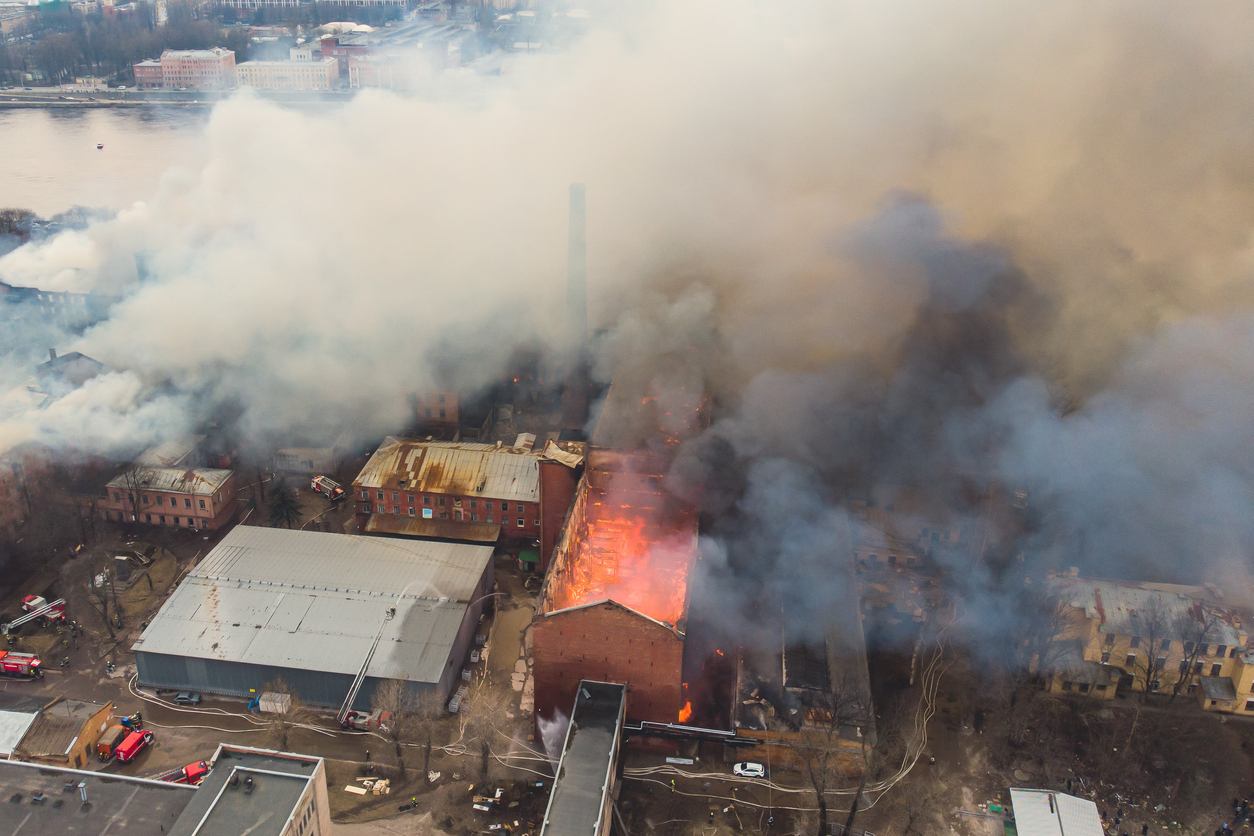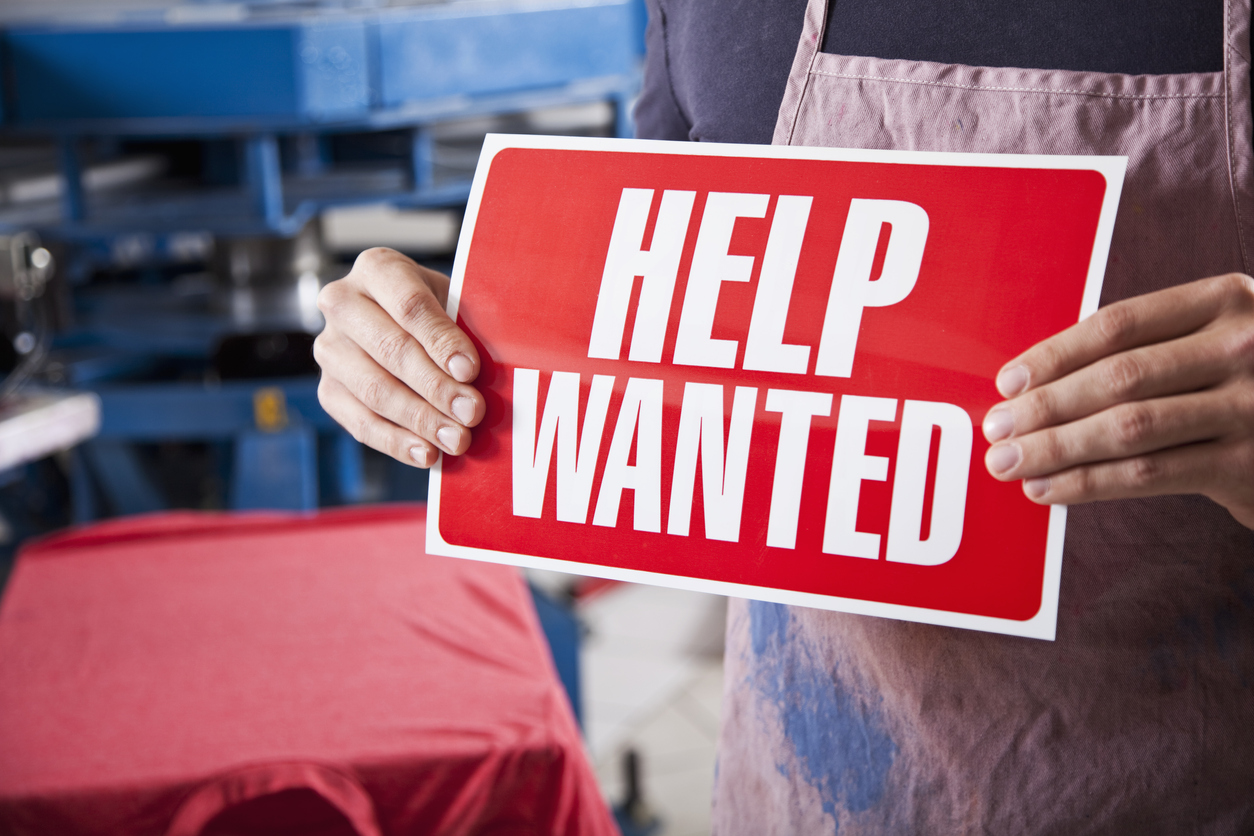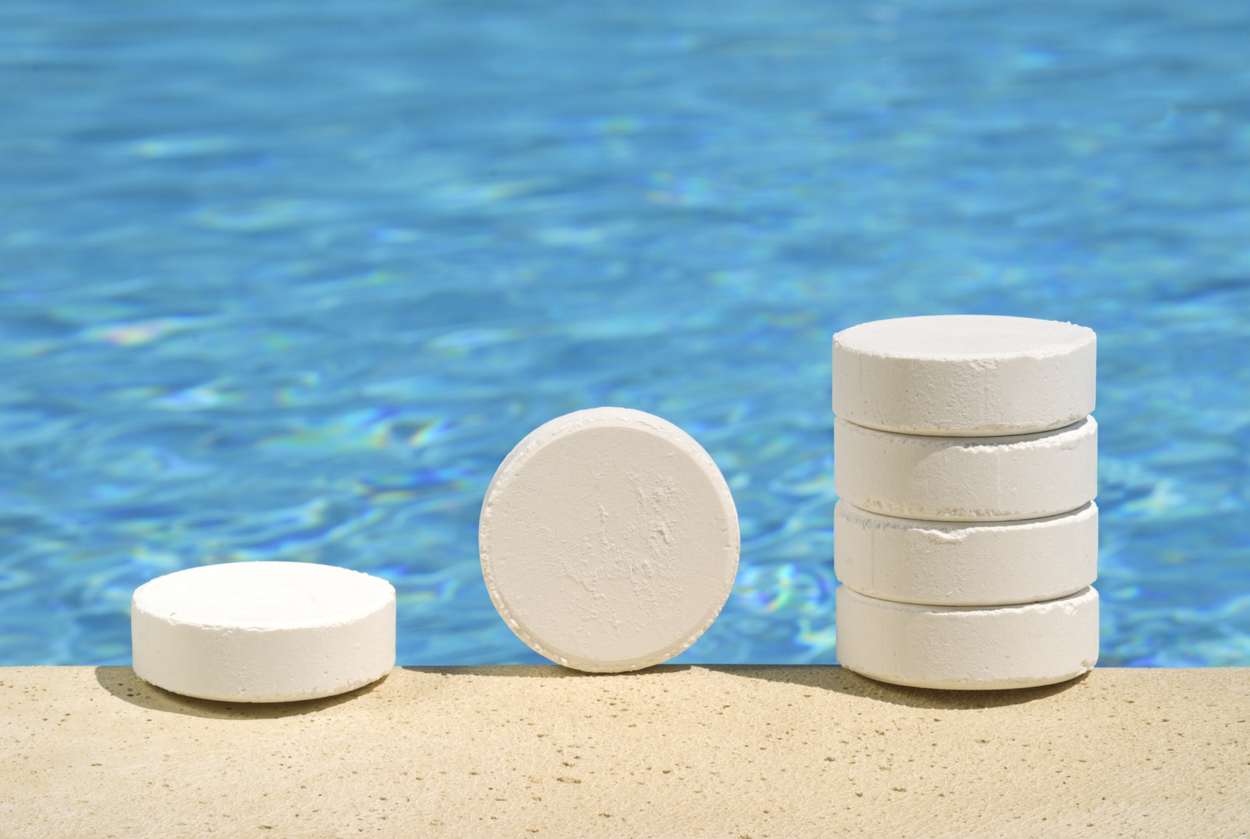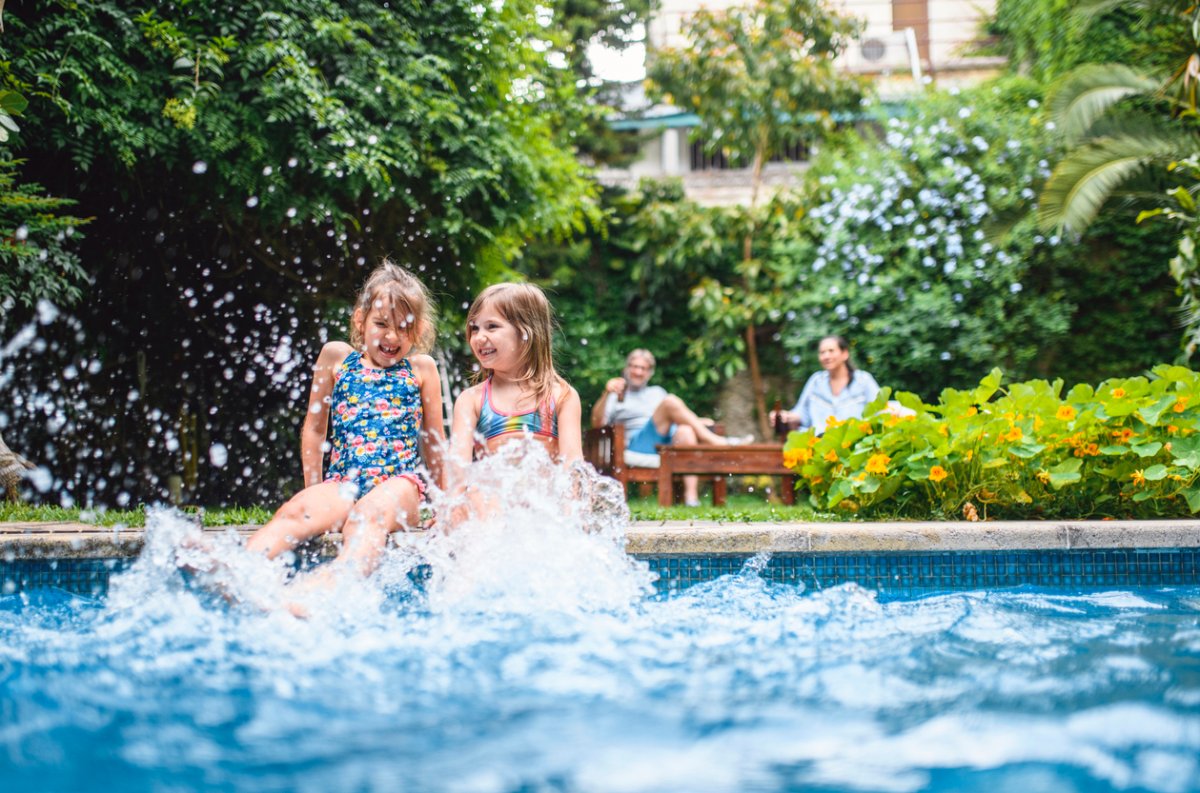We may earn revenue from the products available on this page and participate in affiliate programs. Learn More ›
The Covid-19 pandemic made waves in the world of shipping and manufacturing, leading to shortages of appliances, lumber, electronics, and more. The latest product to be affected? Chlorine tablets. If you’re a pool owner, you’ve probably noticed that it hasn’t been easy to find chlorine tablets this summer. What may surprise you is that this shortage isn’t just because of the global health crisis.
Read on to learn more about the chlorine shortage of 2022 and how despite the shortage you can still enjoy your pool during the hot summer.
Why is there a chlorine shortage?
The demand for chlorine increased in 2020 because people were spending more time at home, enjoying their backyards. In fact, according to a recent report from Goldman Sachs, 96,000 pools were built in the United States in 2020, which is a 23 percent increase over the previous year’s figures. More pools to treat, of course, meant that demand for chlorine increased. If that wasn’t enough to upset the chlorine supply, one of the biggest chlorine producers in the country experienced an unexpected crisis that sent shockwaves through the industry.
Catastrophic Chlorine Plant Explosion

In late August 2020, Hurricane Laura hit the coast of Louisiana and, on August 27, the BioLab plant in Westlake experienced a catastrophic fire. BioLab makes treatment products for pools and spas, including many chlorine-based products. The company produces 40 percent of the chlorine tablets sold in the United States.
Luckily, no employees were injured in the Westlake plant explosion but there was “significant damage to the facilities,” according to the U.S. Chemical Safety and Hazard Investigation Board (CSB). BioLab was forced to cease production, which meant that there were only two other producers of chlorine tablets operating in the U.S.: Occidental Petroleum and Clearon Corp. These manufacturers have struggled to keep up with demand, and though they’ve increased their output they haven’t been able to match BioLab’s production.
Ongoing Issues in 2022

In March 2022, BioLab announced that their facilities would reopen in August. There has, however, been some speculation that the reopening could be delayed by the ongoing shortage of construction materials. In any case, the plant won’t officially resume production until 2023 and is still nowhere close to making up for its lost output. When the new plant is finally operational, the company plans to increase its production levels by 30 percent to meet the new national demand.
Two other calamities in 2022 significantly impacted the chlorine industry: In January, a major fire broke out at Qualco Inc., a New Jersey chemical company that specializes in products for pools and spas. There was no loss of life in the blaze, but the plant was significantly damaged. The company lost 100,000 pounds of chlorine tablets, setting the industry back further—and making it even more difficult to find chlorine tablets than before. Then, in April 2022, a fire triggered a chlorine leak at the Louisiana factory of Olin Corp., exacerbating the shortage even further. Ongoing labor shortages, and shortages of materials and supplies, are making it especially difficult for these plants to operate efficiently.
RELATED: The Best Chlorine Tablets for a Clean and Clear Pool
Chlorine Prices: What They Were, and Where They Are Now
According to a report by Goldman Sachs, experts estimate that chlorine prices this summer will be 58 percent higher than they were last summer.
A 50-pound bucket of chlorine tablets lasts the average pool owner one season. Before the pandemic hit, those buckets cost $75 to $85. In many parts of the country, the price of the buckets doubled in 2021. In August 2022, prices are downright astronomical: At the time of publication, a 40-pound bucket of Clorox Xtra Blue tablets costs more than $270 on Amazon.
Chlorine tablets are the most popular method for keeping residential pools clean; 70 percent of residential pools are kept clean with tablets. Public pools, however, typically use alternative methods of chlorination, so they’re unlikely to be affected.
Why You Shouldn’t Stock Up On Pool Chlorine Tablets

If you manage to find a pool supply store with a healhty supply of chlorine tablets, you may be tempted to stock up in case the shortage continues. The reality is, however, that the shortage will only become more severe if pool owners purchase more than they need for the season. Also, chlorine tablets last for only 3 years, so it’s not prudent to buy much more than you can use in a single season. Some store owners are even imposing limits to how much you can buy to ensure that everyone has access to chlorine.
Tips for Maintaining a Pool During the Chlorine Shortage
The ongoing chlorine shortage is making pool owners wonder: Should they continue to chlorinate their pools themselves, or come up with a Plan B? Here are some steps to consider if chlorine tablets are inaccessible, whether due to price or availability.
• Test the pool water more frequently.
Testing your pool water frequently can really help reduce chlorine consumption during the ongoing shortage. Doing so will help swimming pool owners determine when their pools actually need chlorine, rather than adding chlorine tablets to the water on a set schedule. Showering before swimming can help reduce the amount of bacteria in the water, too.
RELATED: The 7 Best Pool Test Kits, According to Our Testing
• Hire a pool service company.
If you’re not able to find the necessary chemicals to keep your pool clean, hiring a pool service company is a viable alternative. While hiring a service is more expensive than cleaning the pool yourself, it may be your only choice if chlorine is not available.
• Convert your pool to saltwater.
One option that eliminates the need for chlorine altogether is to convert your pool to a saltwater system. While the conversion process certainly involves some high up-front costs, the price of maintaining a saltwater pool over time is much lower than the cost to keep up a chlorinated pool. Many homeowners prefer saltwater pools because don’t require the use of harsh chemical cleaners.
What about liquid chlorine?
While there are a number of advantages to using chlorine tablets—they’re easy to use, for example, and have a fairly long shelf life—liquid chlorine is always an option when the tablets aren’t available. Chlorine tablets and chlorine liquid both sanitize the water, preventing the growth of algae and bacteria.
One of the major downsides of liquid chlorine is that you need a lot of it: Two chlorine tablets are equivalent to 1 gallon of liquid chlorine. The concentration of chlorine in liquid chlorine is typically between 10 and 12 percent, with the rest made up of water and some salt. For this reason, you’ll either have to buy a massive quantity of liquid chlorine to get you through the season—or visit the pool supply store every couple of weeks.
Another downside of liquid chlorine is that it has a short shelf life, and lasts just a couple of weeks before it loses potency. Be sure to store it in a cool location so the solution will be effective for as long as possible. The other thing you need to know about liquid chlorine is that it might affect your pool’s pH levels, so be sure to monitor them throughout the season.
Despite its drawbacks, liquid chlorine is pretty easy to use. You don’t have to mix the formula, and you can simply pour it into the pool as needed. Generally speaking, when there are no shortages, liquid chlorine is more affordable than tablets and will keep your pool clean until you can get your hands on the tablets.
RELATED: How to Maintain a Pool: Tips For Safe Enjoyment All Season

Is there anything other than chlorine that will keep my pool clean?
It’s not surprising that some pool owners are concerned about long-term chlorine shortages and are thus seeking to cut out chlorine completely, and find a different way to maintain their pools. Some options include:
- Ionizers: Ionizers send a low-voltage current into the water, which has a positive charge, in order to attract dirt and bacteria. It’s important to note that a small amount of chlorine or bromine is still necessary when using a pool ionizer.
- Ozonators: Installing an ozonator on your pool’s plumbing line adds ozone gas into the water, which acts as a cleaning agent. An ozonator can’t substitute for chlorine completely, but it can reduce chlorine needs by as much as 90 percent.
- PHMB: Polyhexamethylene biguanide, better known by the brand names Baquacil and SoftSwim, allows owners to completely eliminate the need for chlorine. This chemical is gentler than chlorine but is expensive, costing about $750 to maintain a pool for 16 weeks.


